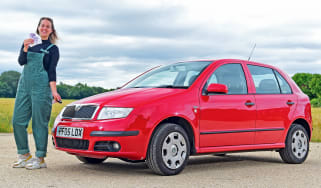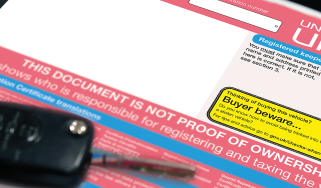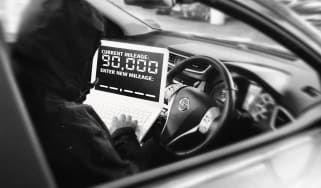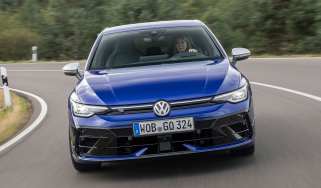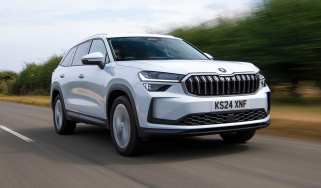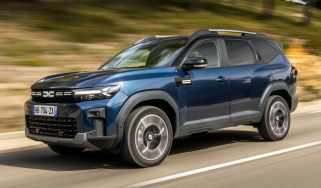Petrol or diesel: which should you pick for your next car?
Hybrids and EVs are on the rise, but the petrol vs diesel dilemma remains for most new car buyers
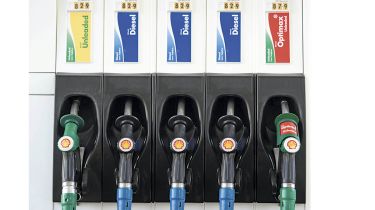
New car sales slumped during the pandemic, and diesel cars have been hit especially badly. Previously incentivised by consecutive governments for apparent CO2 advantages, they have recently been demonised as we all learned that real world emissions from cars have been consistently under-reported.
It’s not just the VW Group’s emissions scandal that has turned the public off diesel cars. Apart from the loss of faith the high profile ‘dieselgate’ saga caused among consumers, drivers fear the real possibility of increased diesel fuel taxation and even urban bans for these former economy champions.
New petrol car sales have fallen too, but they haven’t fallen as far as diesel in market share terms. As you would probably expect, hybrid and electric car sales have bucked the trend and their numbers are actually rising.
Amid all the hysteria, it’s easy to be blinkered to the continuing advantages of diesel engines, which will surely continue as a major force in the UK’s car pool for some years to come. Technological advances mean new diesel cars – if properly maintained – do now genuinely boast some of the lowest tailpipe emissions around, whichever measure you choose, and tax threats against ‘dirty diesels’ are focused on older models.
Whether that fact is reflected in a diesel bounce as we emerge from the pandemic and customers return to showrooms remains to be seen. The news of the UK's ban on the sale of new petrol and diesel cars being brought forward to 2030 will certainly have consumers wondering if now is the time to go electric but with most new cars bought on 3-year finance deals, there's life in the petrol and diesel car market yet.
Our advice is to look at the figures and your own car usage patterns closely to get beyond the hype. Hybrids and EVs have hidden environmental costs too and they may be more expensive buy. You'll also need to think about how far you drive and where you'll charge if you're thinking of an electric car. Once you’ve weighed up the pros and cons, and looked at the overall cost of ownership over a number of years, the choices may not be as clear-cut as they may at first appear.
The reality is that diesel still has a place in the market, and it's not going to disappear any time soon, especially because road freight relies heavily on diesel to keep trucks and the whole UK distribution network moving.
It's true that taxation on diesel cars has risen, although this only affects the initial purchase price, and won't impact on the annual road tax that owners will pay. With that in mind, canny buyers will be able to benefit from great discounts that dealers are currently offering to entice drivers back to the black pump, and these discounts will far outweigh the extra cost of taxation being levied on diesel models.
Choosing between petrol or diesel when buying a new car is an important decision that could save you money in the long run. Both fuels have their benefits, and this guide picks out the advantages and disadvantages they offer. So whether you're choosing an SUV, family car or even something sporty, then this guide will help you choose the right engine for your needs.
The guide below helps match your driving style to either a petrol or diesel car. It should help you decide between a petrol or diesel-engined car next time you come to buy...
Performance
Diesel engines used to be noisy, smelly and generally unrefined. Today, that’s far from being the case, and while some may rattle at idle (especially when cold) or get clattery when revved, it’s rarely enough of an issue to turn a potential buyer away from a diesel car. You'll also find that nearly all new diesel cars for sale in the UK today feature turbocharging, which further smooths out the engine note. And besides, modern cars feature plenty of sound deadening around the engine bay and interior to help reduce engine noise, so even if a new diesel car sounds a bit gruff from the outside, it's likely the occupants will hardly be aware of the noise.
One of the big differences in driving character between a petrol and a diesel engine is that diesels tend to rev lower, because they deliver their torque earlier in the rev range. This power band is usually relatively narrow when compared to a petrol engine, too, but as there's plenty of torque on offer, a diesel is highly flexible even in higher gears – so you may not need to change down to overtake on a motorway.
Petrol engines tend to need to be revved higher in order to extract maximum performance. However, with many manufacturers replacing naturally aspirated petrol engines with smaller capacity turbocharged units, this is less of an issue. Engineers are designing these engines so that the turbocharger spools up at low revs, which replicates the torquey power delivery of a diesel, while some engines feature twin turbos so that this low-down torque continues all the way to a typically high petrol engine redline.
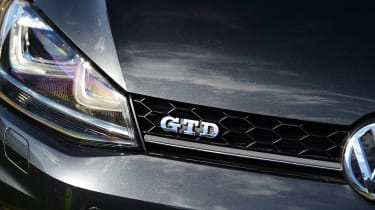
The flexibility of a diesel is well suited to motorway cruising, but given sufficient reserves of torque and power, many modern diesels have all the performance they need to outmuscle a petrol equivalent on a British B-road too. With so much effort delivered at low revs, they’re generally superior for heavy loads and towing, too. However, as we mentioned, the latest generation of turbo petrol engines are closing the gap with a similar style of power delivery, so they shouldn't be ruled out entirely.
While turbo petrol engines are becoming more like diesels, there's also a tilt in the other direction, as makers offer higher performance diesel models. These fast diesels largely consist of rapid SUVs, while there are a few diesel hot hatchbacks for sale, too. However, when you compare them to their petrol equivalents, it's obvious that the performance diesel still doesn't quite match the petrol version in performance figures alone.
The outgoing Ford Focus ST is one such example of a hot hatch that comes with petrol or diesel power. With Ford's 185PS 2.0 TDCi diesel, it manages 0-62mph in 8.1 seconds, but the 250PS 2.0 EcoBoost turbo petrol is far faster, taking 6.5 seconds. Where the TDCi claws back ground is with fuel economy, with an official average of 67.3mpg, while the petrol manages 41.5mpg. If you prefer that balance of performance and economy, then you'll have to pay a £1,200 premium for the diesel, but then if fuel savings are your priority, then why are you looking at an ST diesel in the first place?
Purchase price and residual values
In principle, a diesel engine is a simpler form of combustion powerplant. But manufacturers have invested huge amounts of development cash into diesel engines in recent years to help them deliver smoother power and cleaner emissions, and most experts would agree they tend to feature technology that’s more expensive to replace than their petrol equivalents.
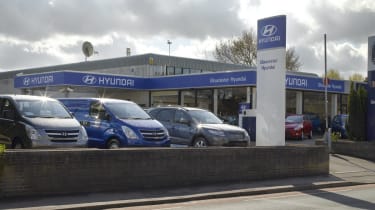
High-pressure diesel components like fuel pumps and common rail injector systems are much more expensive to engineer than simpler petrol equivalents, and this is factored into the purchase price.
On average, a modest family car with a diesel engine will cost around £1,500 more to buy than its petrol-engined sister model, and as a rough rule of thumb will be worth around £750 to £1,000 more when it comes to reselling it (assuming a typical ownership cycle of three years and 30,000 miles).
Running costs
Petrol is usually a few pence per litre cheaper than diesel at the pumps, but diesel engines are generally more efficient than petrol by a considerably higher margin. That means a diesel model will almost certainly be cheaper to keep filled up, even if you only do an average mileage. Motoring experts have calculated that a supermini-sized car will only save around £250 in fuel costs over three years if you average 10,000 miles annually. Move up to a family sized hatchback like a Ford Focus or a VW Golf, and the savings increase to nearer £500. Pick a medium sized SUV like the Nissan Qashqai, and the diesel saving could be closer to £900.
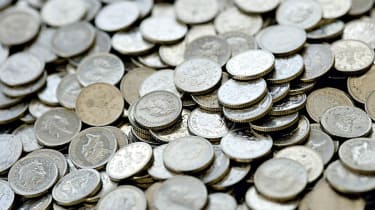
Given the price differentials involved, it makes most sense to pick a diesel if you’re driving significantly more miles than the average 10k per year, and especially if you’re doing it in a larger than average car. If your mileage is only average, the cost of buying and selling tends to even things out, and there’s usually no financial advantage in buying the pricier diesel.
This unlikelihood of making fuel savings with a diesel becomes even more significant if you’re shopping for a used car outside of its warranty period, as you’ll also have the prospect of more expensive diesel repairs. The latest diesel technology doesn’t come cheap, and faulty fuel pumps, injectors and particulate filters are all potential expenses that petrol car owners won’t have to face.
Emissions and the environment
The environmental impact of diesel engines has been called into question in recent months. When lawmakers, in their wisdom, decided to impose car tax structures based on carbon dioxide (CO2) emissions, it was clearly a move that favoured diesel engines. CO2 is linked to global warming, and while diesel cars emit less of it than petrol cars, the waters have become rather muddied in recent years with the Volkswagen ‘dieselgate’ scandal and its ripple-effect.
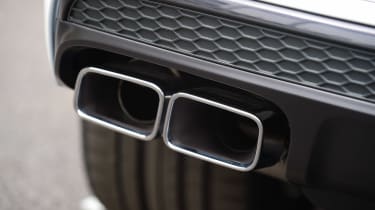
Diesels are good on CO2, but they produce lots of other pollutants such as nitrous oxides (NOx), hydrocarbons and soot particulates that are linked to asthma and other breathing conditions. Many experts now consider the CO2-based tax system to have been ill-considered, and there's a push for tighter controls on the exhaust emissions that diesel cars produce more of. In the US where controls on NOx and particulates in exhaust emissions are tighter, diesel cars made up only 3 per cent of total sales in 2014, whereas more than half of the cars sold in the UK had diesel engines.
One advantage that diesel has given up is its Road Tax savings. A restructure to the system in April 2017 saw the emissions-based road tax bands that owners were subject to dropped in favour of a simplified three-tier system that sees only zero-emissions electric vehicles costing less than £40,000 paying zero road tax. Diesels now pay the same flat rate as petrol cars, whether it's £150 for cars that cost less than £40k, or £475 for ones above that threshold.
It's worth noting that any future regulation or taxation that may be imposed on diesel cars shouldn't be retrospective. So if you run a diesel car at the moment, its road tax rate should stay the same for the life of the vehicle. There may be Government incentives for owners to scrap their older diesel cars in the future, though, similar to the scheme it set up a few years ago to help boost sales.
Today, there's a distinct move away from diesel as a power source for new cars, as buyers turn to petrol, while company car buyers are starting to embrace the tax benefits of plug-in petrol-electric hybrid models, which offer far more favourable rates than both petrol and diesel.
• Company car tax guide 2016: all you need to know
Petrol or diesel? The verdict
Many drivers love the mid-range flexibility and pulling power that a diesel car delivers. They also feel smug during their rarer visits to the filling station, even if a new or used diesel is unlikely to make sense on a purely economic basis, unless it's driven considerably more miles than the UK annual average.
Enthusiast 'purists' enjoy the smoother, free-revving nature of a petrol engine, especially the torquey units now being offered on the majority of new cars, while everyone else will enjoy the refinement and avoid the extra costs of all the extra tech that diesels need to make them clean and efficient.
The reality is that legislation is starting to put diesel out of favour, although if you're spending more on a car, the financial penalties aren't quite as harsh as they are for small cars.
• Euro 6 emissions standards explained
In the past, the answer in the great petrol vs diesel debate was that it depended on how you used your car and what you wanted from it. Now, it's not quite as clear-cut. Each fuel type still has its strengths and weaknesses while there are good and bad engines on both sides of the fence, too. But at the moment it remains to be seen if diesel will be legislated against to discourage sales in the future.
For now, your best bet is to weigh up the pros and cons above according to how you use your car and use the Auto Express reviews to make sure that whatever car you buy is a good one, while keeping an eye on potential changes to legislation in the future.
Now you can buy a car through our network of top dealers around the UK. Search for the latest deals…
Find a car with the experts



